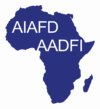It is the desire for all technology innovators to convert an innovative idea into a profitable and sustainable business that offers current and future solutions. However, this requires the Government to intervene in providing an enabling environment including but not limited to policy, regulations, reliable infrastructure as well as ensuring universal service and access.
The Government has a role in ensuring all underserved areas are provided with internet access. This necessitates establishing a universal service and universal access funds to subsidize various investment and sections of service delivery to the population. Universal quality services stimulate the development of local private business communities by providing suitable communication tools to facilitate interaction and exchange of goods and services with remote business communities.
Providing ICT services in unserved and underserved areas poses significant challenges, especially where private operators are reluctant to invest due to uncertainty around returns. To address this gap, universal access initiatives should ensure that services meet key parameters. First, affordability is essential; ICT services should be reasonably priced to allow a large portion of the population, particularly in low-income areas, to access and use them consistently. Accessibility is also critical; service points should be located as close as possible to end-users, including persons with disabilities, to promote inclusivity.
Additionally, availability should be guaranteed through uninterrupted access to ICT services, which requires investment in resilient and redundant infrastructure for business continuity. Sustainability is another vital factor; ICT access points should be designed and maintained for long-term use, supported by regular reviews and adaptable systems that ensure ongoing relevance and functionality. Lastly, quality of service must be upheld across all areas; communities in underserved regions deserve the same high standards of connectivity and service as those in well-served zones.
Meeting these parameters helps bridge the digital divide and fosters inclusive socioeconomic development. By promoting ICT for development, technological innovations drive the universal use of ICT applications in social, cultural and economic oriented programs to improve the standard of life of local communities particularly in rural areas focusing on E-Health, E-Education and e-Learning, E-Governance and E-Commerce.
As a Development Finance Institution, Kenya Development Corporation (KDC) focuses on offering affordable finances for investments in technological innovations across value chains within the Government sector of focus with significant positive impact on social economic transformation, low carbon print anchored on sustainable and secure universal and quality ICT services.
Herman Gacugi
Manager, Risk Management and Compliance Kenya Development Corporation
